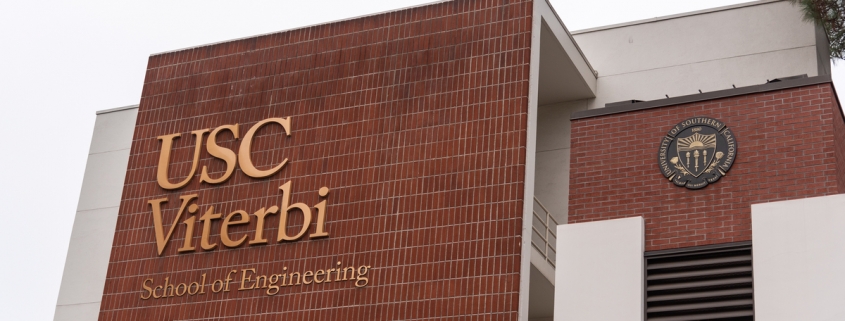Viterbi online program offers versatile curriculum

The Viterbi School of Engineering’s online graduate information technology program combines accessibility with convenience. Known as Distance Education Network, or DEN@Viterbi, the program has been ranked the No. 1 computer information technology online master’s program in the nation by the U.S. News & World Report for seven consecutive years.
The program provides engineering professionals with opportunities to advance their education remotely, DEN Associate Dean Binh Tran said.
DEN enables online students to access live classes or watch video recordings later. With online discussions and office hours, DEN courses offer engagement and allow online students to be actively involved in classes, Tran said.
“[DEN students] would actually join any of our classes via telephone or video conferencing,” Tran said. “If they had questions, or they have to do the presentations, they do it online, and they’re just part of the traditional class.”
DEN holds events for online students to come and network with each other to give them a chance to experience life on campus more often, Tran said.
“We will host homecoming and [tailgates] where we only invite online students to come and meet with other online students,” Tran said. “We have graduation commencement ceremonies and receptions just for online students.”
DEN students are admitted by the same standards as on-campus students. According to the report, 96% of DEN students provide their GRE scores on their applications, a figure much higher than similar programs at other schools, such as those at Johns Hopkins and New York universities.
“This is the same exact degree of students coming in on campus,” Tran said. “[DEN students] have the same admissions requirements, they do the exact same work and assessments as on-campus students do.”
John Pascarella, an associate professor of clinical education, said online education provides more diverse ways for students to interact with instructors while not being confined to time and location in an increasingly digital world.
“What online education does is it opens up back channels of communication through chatting, messaging and offering questions that perhaps [students] would be too intimidated to ask,” Pascarella said.
In the studio classroom, instructors use two computers to show the lecture slides and their own solutions simultaneously, according to Victor Adamchik, a professor of computer science practice.
“In each DEN room, there are three screens, with left and right screens to show the textbook, and I’m using the central screen to show my solutions to the problems,” Adamchik said.
Associate professor of computer science practice Wensheng Wu, who teaches a graduate computer science course with a DEN session this semester, said he uses emails, discussion boards and live streaming classes to engage online students.
“We do have a phone line they can call and ask questions,” Wu said. “I’ll be talking to DEN students to make sure that they are getting familiar with arrangement [and] make sure that they don’t miss the test.”
Tran said a significant portion of DEN students are working professionals who want to advance or change their careers by taking online programs.
“Most of them come in [with] the average age older than our on-campus students,” Tran said. “They are different in terms of having a lot of other things that are happening in their lives that are different from a traditional, full-time, on-campus student.”
DEN student Brandon Stephan, who is pursuing a master’s degree in data science, said that DEN’s flexibility allows him take online courses similar to those on campus without having to move out of his hometown.
“The field of data science is continuously changing, and you need to be learning every day,” Stephan said. “I believe that obtaining another graduate degree in data science will help me on that path of continual learning … and help me advance my career and have higher pay.”
DEN also benefits on-campus students who may have other academic or career plans that conflict with traditional classes, Tran said.
“Many of our on-campus students sometimes will take internships or take jobs,” Tran said. “They’re able to make the transition into online students without having to sacrifice the academic program.”
Tran said the greatest challenge in building the DEN program was communicating all the resources and services available to online students while maintaining standards comparable to those of other University programs.
“We tell them and we remind them that you are in a very rigorous academic program — you’re not getting a different degree,” Tran said. “A lot of it is just making sure that they understand the requirements.”
Pascarella also mentioned that a limitation of online education that both instructors and students needed to be aware of was the feelings of detachment that may result from the programs’ remoteness.
“One of the biggest challenges with online education is the dissonance, not the distance, that can occur in the experience,” Pascarella said. “We need students to speak up, reach out, advocate for their learning.”

